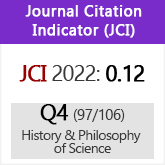Public health reform and the infant welfare movement in the fight against infant mortality in the city of Palma de Mallorca (19th and 20th centuries)
DOI:
https://doi.org/10.3989/asclepio.2012.v64.i1.514Keywords:
Hygienism, Infant Welfare movement, Public Health reforms, Decline of mortality, Infant mortality, 19th - 20th centuries, Mallorca, Balearic IslandsAbstract
The Balearic Demographic Transition has been considered a forerunner in the Spanish context due to a high life expectancy of 42 years in the decade of 1860, owing primarily to low infant mortality. For a more in-depth evaluation of the factors behind this exceptional health situation, we analyze the role played by Hygienism in the decline of mortality due to the Infant Welfare movement and Public Health reforms that took place at the end of the 19th century and in the first decades of the 20th century. Both processes were led by a variety of community stakeholders such as physicians, engineers, nuns, lawyers, as evidence of a social consensus in the condemning the so-called ‘avoidable’ causes of disease and death.
Downloads
Download data is not yet available.
Downloads
Published
2012-06-30
How to Cite
Pujadas-Mora, J. M. (2012). Public health reform and the infant welfare movement in the fight against infant mortality in the city of Palma de Mallorca (19th and 20th centuries). Asclepio, 64(1), 97–120. https://doi.org/10.3989/asclepio.2012.v64.i1.514
Issue
Section
Studies
License
Copyright (c) 2012 Consejo Superior de Investigaciones Científicas (CSIC)

This work is licensed under a Creative Commons Attribution 4.0 International License.
© CSIC. Manuscripts published in both the printed and online versions of this Journal are the property of Consejo Superior de Investigaciones Científicas, and quoting this source is a requirement for any partial or full reproduction.All contents of this electronic edition, except where otherwise noted, are distributed under a “Creative Commons Attribution 4.0 International” (CC BY 4.0) License. You may read here the basic information and the legal text of the license. The indication of the CC BY 4.0 License must be expressly stated in this way when necessary.
Self-archiving in repositories, personal webpages or similar, of any version other than the published by the Editor, is not allowed.















